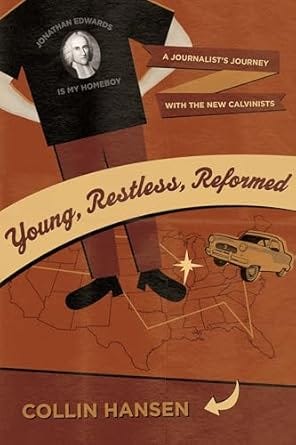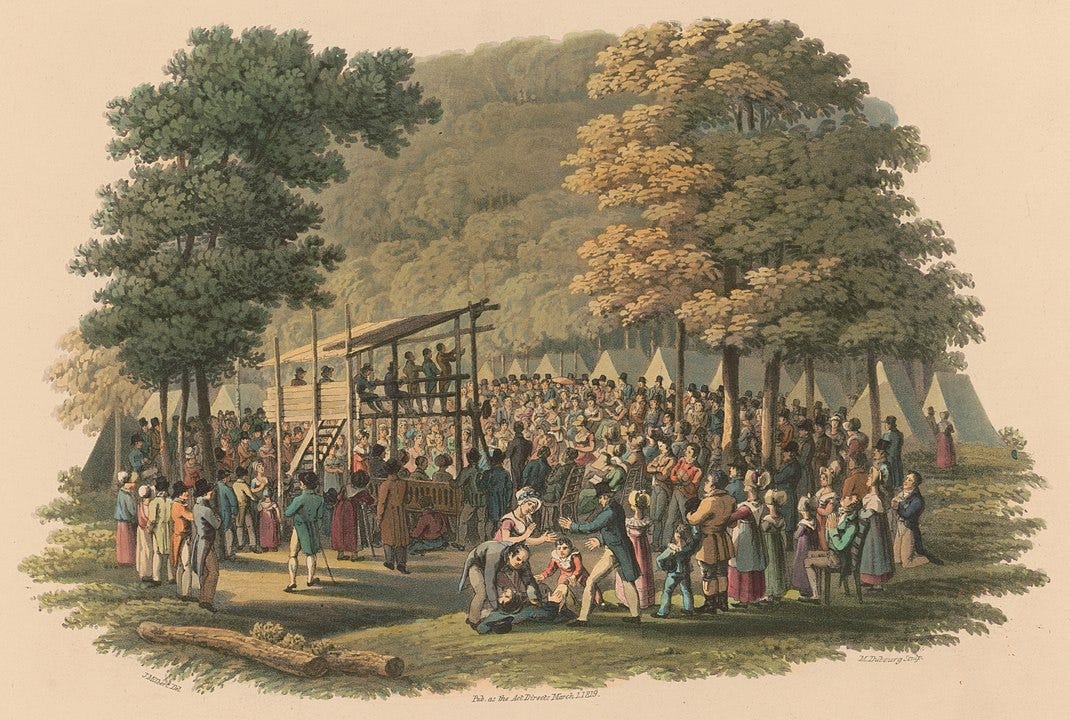While I was in graduate school, I came back from a year of research travels to find that some of my friends had joined a different Baptist congregation. I ended up following them there, mostly to play guitar in the praise team. At a time in my career when I had little knowledge of religious history or historical theology, I had only the dimmest sense that I was part of a growing, rather young congregation that was not only evangelical, but Calvinist — pastored by a British expert on Jonathan Edwards.
I soon moved back to Minnesota and recovered my own heritage in Swedish Pietism. But while I was gone, Trinity Baptist Church outgrew its rented space at a Seventh-day Adventist church and bought a Catholic church in downtown New Haven. In 2008 its story featured in Collin Hansen’s book Young, Restless, Reformed: A Journalist’s Journey with the New Calvinists. While I’m not a Reformed Protestant, Hansen’s book helped me make sense not only of my past experience at Trinity Baptist but my early years at Bethel, a historically non-Calvinist university where more and more of my male students were reading Edwards, John Calvin, and various Puritan writers — not to mention former Bethel professor John Piper, another key figure in Hansen’s book who had left our faculty a quarter-century earlier to pastor Bethlehem Baptist Church in downtown Minneapolis.
But it’s been a while since a student has tried to tell me about the doctrines of grace, and the “young, restless, Reformed” phenomenon mostly survives for me in the recesses of fading memory.
Only for Christianity Today earlier this week to revive the language with a telling theological twist. “There appears to be a growing number of young people drawn to Wesleyanism and Wesleyan-Arminian theology,” reported Clayton Sidenbender.
Nearly 20 years after the rise of New Calvinism—when ‘Young, Restless, Reformed’ Christians embraced the doctrinal system taught by French theologian John Calvin—there’s a new and renewed interest in another theological tradition, which has a bit of a different flavor….
Groups of theologians are working to articulate Wesleyan theology in a fresh way. A small Wesleyan seminary has grown 500 percent in just six years. A new Wesleyan denomination, the Global Methodist Church, is sparking revived interest in the history and theology of the tradition and increased attention to spiritual practices, including Bible reading, worship, and prayer. Last year, a revival among the students at Asbury University drew international attention to Wesleyan spirituality.
Call it “Young, Restless, Strangely Warmed” evangelicalism, after John Wesley’s famous description of his May 1738 conversion experience, when a visit to a Moravian society in Aldersgate left his heart “strangely warmed.” In addition to the latest revival at Asbury and the growth of the Global Methodist Church, a conservative group that broke away from the United Methodist Church during its schism over sexuality, Sidenbender mentioned an array of new Wesleyan media and the 2022 drafting of The Faith Once Delivered: A Wesleyan Witness by Methodist, Holiness, Pentecostal, and other theologians in the evangelical wing of the Wesleyan tradition.
Here’s a gift article link in case you want to read it yourself. I thought I’d add just a few thoughts for my own paid subscribers, as a kind of follow-up to last week’s post on evangelicalism…
Keep reading with a 7-day free trial
Subscribe to The Pietist Schoolman to keep reading this post and get 7 days of free access to the full post archives.




